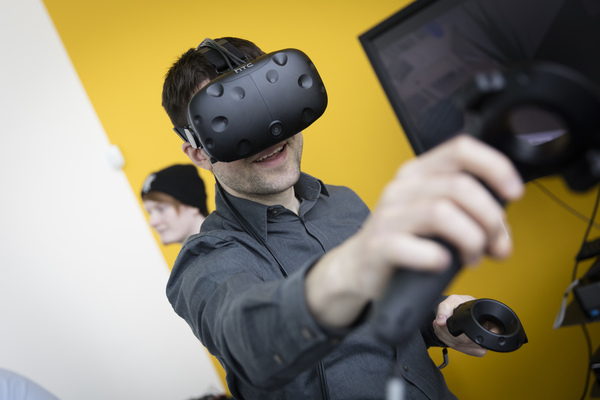Entry Requirements
There are two requirements and you will need to provide evidence of both of them in your application:
- A first or upper second class honours degree in computer science or a related discipline. This could include engineering, mathematics, physics, or other numerate science and technology subjects.
- Competence in computer programming. Acceptable forms of evidence of this skill to include in your application include, but are not limited to: (a) academic degree transcript showing 2:1 level scores in one or more programming classes; (b) a copy of a university, employment, or hobby project report detailing programming work; (c) a link to a source code site such as gitlab or github containing samples of your code; (d) a certificate of completion of an online programming course and exam such as https://www.udemy.com/course/the-complete-python-developer-certification-course/ or https://www.udemy.com/course/learn-basics-of-c/.
If you have a good numerate degree but no programming experience then you may be able to satisfy the requirements by self-studying programming and passing a programming test online, such as through the above links. This may take a few weeks or months of part-time study depending on your previous knowledge. It is quite common for students to apply in this way.
If your application does not include sufficient evidence of both of the above, you may be asked to provide samples of self-directed project work or to have an informal conversation to clarify them.
If you have studied outside of the UK, and are unsure whether your qualification meets the above requirements, please visit our country pages for information on equivalent qualifications.
https://www.lincoln.ac.uk/home/studywithus/internationalstudents/entryrequirementsandyourcountry/
Overseas students will be required to demonstrate English language proficiency equivalent to IELTS 6.0 overall, with a minimum of 5.5 in each element. For information regarding other English language qualifications we accept, please visit the English Requirements page.
https://www.lincoln.ac.uk/home/studywithus/internationalstudents/englishlanguagerequirementsandsupport/englishlanguagerequirements/
If you do not meet the above IELTS requirements, you may be able to take part in one of our Pre-sessional English and Academic Study Skills courses. These specialist courses are designed to help students meet the English language requirements for their intended programme of study.
https://www.lincoln.ac.uk/home/studywithus/internationalstudents/englishlanguagerequirementsandsupport/pre-sessionalenglishandacademicstudyskills/





